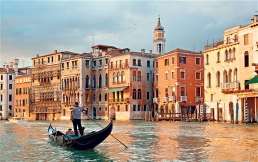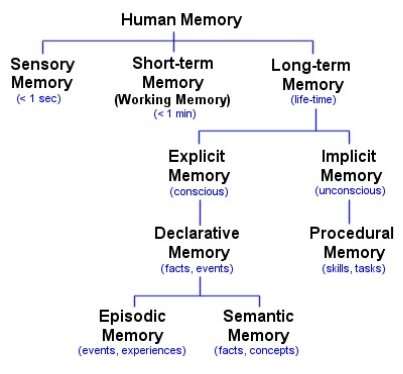How Does Architecture Create Memories?
Memory AND ARCHITECTURE
How does architecture make memories? Should it non be the most of import undertaking of it beyond signifier and map?
Introduction
Order custom essay How Does Architecture Create Memories? with free plagiarism report
 450+ experts on 30 subjects
450+ experts on 30 subjects
 Starting from 3 hours delivery
Starting from 3 hours delivery
Architects from rather some clip have started speaking about making “a sense of a place” by supplying an environment which is experiential and has a sense of belonging.
“Sense of a topographic point goes manus in manus with making memories” ( Lehmon, 2008-2010 ) as written by Maria Lerena Lehmon in her article “sensing architecture” . Further lucubrating on the subject she says our memory of events may depend upon a strong sense of topographic point, and by extension, our sense of topographic point may be influenced by the unity of memories formed at that place.
The memory of an event or a occurrence ever has a environing background or a physical built around it. If this background has a peculiar character or a sense attached to it so it helps the memory of that event/experience grow stronger. The term “physical background” is non limited to the difficult physical stuffs used but besides to the infinites they generate and the manner our senses respond towards these assorted elements and the manner these stuffs and infinites alter and determine our centripetal perceptual experience.
Why is it easier to retrieve certain paths as compared to the others, is it because they have less figure of bends or is it merely because one can tie in with them more easy?
I live in Jasola Vihar in New Delhi and why is it so that every clip I guide person to my place I end up stating them that I stay in the “grey DDA flats near Appolo Hospital” ?
It’s an unnoticed attempt of making a sense of association with the milieus, be it a land grade or a curious character of a topographic point ( sense of a topographic point ) .
It is now in the universe of globalization that we, in the name of braking boundaries have decided to allow travel of our individualities as good.With the planetary architecture picking up its gait it is going hard to separate between topographic points and hence the formation of a strong association and an irremovable memory of topographic point is being put at serious hazard.
Here is an illustration of Tokyo ( left ) and Chicago ( right ) , two metropoliss from the opposite corners of the universe yet difficult to separate.


Fig. 1 Fig. 2
( Anon. , 2014 ) ( Anon. , 2014 )
Here is another illustrations of Venice ( left ) and Banaras ( right ) , two metropoliss holding certain characteristics in common but yet they stand with independent individualities and honest to the memories and associations attached to them.


Fig. 3 Fig. 4
( ( ALAMY, 2014 ) ) ( Sharma, 2010 )
NEED IDENTIFICATION
Human memory has been the reply bank to some basic inquiry related to our being every bit good as to some complex inquiries related to our journey through ages. “Memory” has ever been of import in the universe of treatments non merely because it is the “record keeper” of events but besides because it is a supplier of individuality. It is our memory that tells us where we belong and where we come from.
Architecture on the other manus has ever been one of the strongest defenders and projectors of a certain individuality ( belonging to a certain clip and topographic point ) . Therefore this survey is meant to place and convey out the elements of the built that really formulate a certain association and a sense of perceptual experience amongst the experiencers, taking us to admit the strength of architecture in traveling beyond signifier and map and arousing our centripetal perceptual experiences for supplying us with a memory of the “self” .
Scope
The survey shall cover the usage of the centripetal variety meats in the apprehension of different infinites both at the colony degree and at single infinite degree.
It shall be a comparative survey between different places/spaces on the personal interview footing sing topographic points in India.
Restriction
Memories of topographic point are normally subjected to personal perceptual experiences and readings and hence to generalize a decision is in uncertainty. A figure personal interviews will be the best possible agencies to average out a sense of a topographic point and to enter how certain characters of the same topographic point are in common in the memories of different people.
Methodology
The bing literature predominating on memory and architecture shall be identified, gathered and reviewed. The reappraisal shall with an armory of theories and thoughts that have been contemplated on the topic in the yesteryear. The survey shall so be applied to the Indian context.
The acquired cognition through the literature study shall be used to place peculiar instances in India taking an illustration of an old town of Bilgram and the metropolitan Delhi. A close survey of both the colony shall be done at the macro and micro degree saying illustrations that can clearly reflect the theories derived from the literature study. The instance surveies shall so be closely looked upon and scrutinised and be written about.
Finally the subject of memory and architecture shall be discussed with a practicing designer and his/her positions shall be acknowledged and documented. All consequences learnt shall so be compiled with a successful effort to deduce to a decision in the terminal.
HUMAN MEMORY AND ITS WAYS
WHAT IS MEMORY?
The mental module entering the past experiences based on the mental procedure of acquisition, retaining and remembering ( Oxford lexicon ) . But is this it?
Let us get down with a brief apprehension of the types of memories that exist and the procedure of their formation.

Fig. 5 ( mastin, 2010 )
What we by and large perceive as memory in our twenty-four hours to twenty-four hours lives is really the long term memory but there besides exist the centripetal memory and the short term memory, which normally go unnoticed by us in the haste of our mundane lives.
Every event/incidence goes through a enrollment procedure in our sensory and short term memory foremost, before being stored for good in our long term memory. Therefore the stronger the impact of an event on our sensory and short term memory the better are the opportunities of that event being remembered for a life time .
SENSORY MEMORY
Centripetal memory is what we relate to ‘perception in an instance’ . It is the shortest signifier of memory generated at a automatic rate through any of our five senses of odor, sight, hearing, gustatory sensation and touch. The clip p of such memory is non more than 300-500 msecs and upper limit to a 2nd ( rare instances ) and therefore it is more of an inherent aptitude based memory. Our encephalon is trained to register merely a selected portion of the information which has the opportunities of being utile in future and therefore most of the clip our centripetal memory goes live. For an event or an experience to hold an impact on our memory at the sensory ( instantaneous ) gait it needs to hold a really strong contact with our either of our five senses. ( mastin, 2010 )
Like for illustration: when you do a trek to Kheerganga through those thick woods and the soft slippery Shivalik mountains of Himachal Pradesh you can ne'er think what will come next and so all of a sudden you enter into this huge vacant vale perfectly untasted and pure, surrounded with immense mountains all about and you stand in the in-between lick a pinpoint of dust.
Or when in the metropolis of Ajmer, you decide to go all the manner up to the Taragarh garrison, off from the pandemonium and the hustle hustle of the metropolis. You reach the top and so you look back, down onto all the flashing visible radiations and a immense nothingness ( the lake ) amongst them, the contrast and the astonishment, can non be ignored.
Or when you enter the edifice of the National Institute Design ( Ahmedabad ) through its low tallness reception/gallery/display country and you all of a sudden happen yourself into this immense courtyard where the edifice merely opens itself to you, the courtyard filled with cold visible radiation and a immense tree turning right in the center of it.
Or for that affair the same edifice pull offing to keep the sensitiveness towards the natural environment to an extent that we can happen alien birds like Inachis ios rolling in the campus like pigeons in Delhi.
Such experiential topographic points do non necessitate a long procedure of recollection and acquaintance to develop an association and a lasting topographic point in 1s memories. These brushs generate a sudden daze, opening themselves as a surprise box and acquire absorbed by 1s centripetal perceptual experience, immediately lodging to his/her memory.
But the restriction of such a memory is that it can merely be generated with a first-hand experience as it requires the response of our senses in the purest signifier which can merely be generated when we ourselves are physically involved in the event ( shabeeb, 2014 )
Short-run MEMORY ( WORKING MEMORY )
The following phase of our memory procedure is the short-run memory or the on the job memory, working on the footing of impermanent callback.
It is the memory formation working analogue with the apprehension of the event. We can take reading as an illustration. When we read, in order to understand the sentence we are reading we need to retrieve the old sentence we merely read. Brain is fundamentally remembering the prequel and understanding the subsequence at the same clip, but the encephalon can be forced to switch the sentences to the slot for long term memory be insistent readings or by calculated effort to consciously retrieve the reading through concentration and apprehension. ( mastin, 2010 )
This is how our encephalon processes pilotage, be it through pages or through roads.
So why is it that we remember certain paths clearly and be given to bury certain once more and once more?
There can be two replies to this inquiry:
Either we travel a certain path more often so the repeat or the timely reoccurrence of the same event makes it stick to our long term memory.
Or while going through certain paths we witness such landmarks which merely can non travel unnoticed and they at the same time form a mental map of our path.
Metro Stationss in Delhi are a perfect illustration of this. They non merely ease the users of the tube but besides end up steering many going on the roads. The cut to Preet Vihar where my uncle corsets is right opposite the pillar figure 100 of Anand Vihar metro line. Now how do I retrieve this? Equally shortly as I made the bend into Preet Vihar through that dense, confounding route of Anad Vihar my encephalon tried to at the same time remember the most high and the closest thing around which my sense of sight absorbed. The pillar figure 100, written with black in a xanthous circle on a gray concrete pillar.
Long-run Memory
Long-run memory is, evidently plenty, intended for storage of information over a long period of clip. Despite our mundane feelings of forgetting, it seems likely that long-run memory really decays really small over clip, and can hive away a apparently limitless sum of information about indefinitely. Indeed, there is some argument as to whether we really of all time “forget” anything at all, or whether it merely becomes progressively hard to entree or recover certain points from memory.
Short-run memories can go long-run memory through the procedure of consolidation, affecting dry run and meaningful association. Unlike short-run memory ( which relies largely on an acoustic, and to a lesser extent a ocular, codification for hive awaying information ) , long-run memory encodes information for storage semantically ( i.e. based on significance and association ) . However, there is besides some grounds that long-run memory does besides encode to some extent by sound. For illustration, when we can non quite retrieve a word but it is “on the tip of the tongue” , this is normally based on the sound of a word, non its significance.
Long-run memory is frequently divided into two farther chief types: explicit ( or indicative mood ) memory and implicit ( or procedural ) memory.
Declarative memory ( “knowing what” ) is memory of facts and events, and refers to those memories that can be consciously recalled ( or `` declared '' ) . It is sometimes called expressed memory, since it consists of information that is explicitly stored and retrieved, although it is more decently a subset of expressed memory. Declarative memory can be farther sub-divided into episodic memory and semantic memory.
Procedural memory ( “knowing how” ) is the unconscious memory of accomplishments and how to make things, peculiarly the usage of objects or motions of the organic structure, such as binding a shoe lace, playing a guitar or siting a motorcycle. These memories are typically acquired through repeat and pattern, and are composed of automatic sensorimotor behavior that are so profoundly embedded that we are no longer cognizant of them. Once learned, these `` organic structure memories '' allow us to transport out ordinary motor actions more or less automatically. Procedural memory is sometimes referred to as inexplicit memory, because old experiences assistance in the public presentation of a undertaking without explicit and witting consciousness of these old experiences, although it is more decently a subset of inexplicit memory.
1|Page
Cite this Page
How Does Architecture Create Memories?. (2017, Jul 07). Retrieved from https://phdessay.com/how-does-architecture-create-memories/
Run a free check or have your essay done for you


